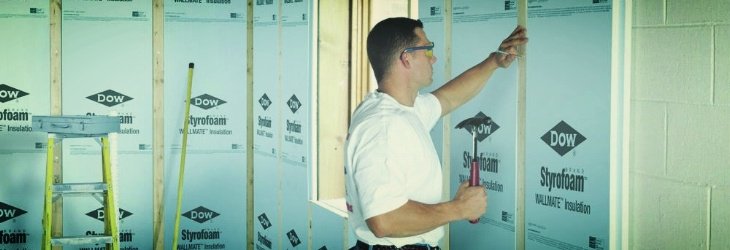Whether you’re providing insulation contracting services for residential clients, commercial clients, or both, you have serious responsibilities.
Your customers are relying on you to reduce heating and cooling costs. You’re expected to provide better overall air flow for their home or business. And you’re expected to complete the job on time, and without any hiccups.
But let’s face it, sometimes hiccups happen.
We know that any good project starts with a solid product, and a great installation contractor. And if you’re in the insulation business, then you know you have a responsibility to provide both.
Maybe you’re running a retail or office space for your customers to select the products they want, or you’re just responsible for providing the installation services at the customer’s location. And perhaps you’re doing both.
Regardless where you fall on the spectrum of the services you’re providing, there are serious risks your business faces every day that if unaddressed, could have a severe impact on your profits… or worse, put you out of business.
Like any other business, insulation contractors need a variety of insurance coverages to ensure their operation is protected. Additionally, rules and coverages can vary from state to state, so understanding Ohio Insulation Contractor Insurance is essential.
Commercial General Liability Insurance
Operating as an insulation contractor often means you’re required to maintain a Commercial General Liability (CGL) insurance policy. This would protect when lawsuits or financial losses occur.
A typical CGL policy provides coverage for claims of bodily injury or other physical injury, personal injury (libel or slander), advertising injury and property damage as a result of your products, premises or operations.
For example, you have been asked by a client to re-insulate their entire home to reduce heating and cooling costs. Months after the insulation has been completed, you receive a call alleging that you caused structural damage, and electrical problems during the installation.
Whether you actually caused any damage is irrelevant at this point… the allegation alone will likely require you to hire an attorney to defend your business and its reputation. That’s costly.
With a CGL policy, not only would you have coverage for the legal expenses, but if it’s determined that you did cause any type of damage, your policy could cover those costs and expenses too.
As a safeguard against liability, CGL enables you to continue your normal operations while dealing with real or fraudulent claims of negligence or wrongdoing. CGL policies also provide coverage for the cost to defend and settle claims.
Commercial Auto Insurance
Commercial Auto Insurance is another important policy that all Ohio insulation contractors and insulation businesses must consider because you’re relying on vehicles to get you from one client to another. Doesn’t matter if you have one truck, or a fleet of 100, you still need Commercial Auto Insurance.
The trucks or trailers that you’re using to haul your equipment and siding should be insured. A Commercial Auto Policy can be used to insure vehicles for:
- Liability – this would protect the business owner in the event of an at-fault accident where the owner, or any employees, caused injuries to others while driving a company vehicle
- Physical damage to the vehicles owned by the business if they’re involved in an accident, stolen or vandalized
- Or both Liability and Physical Damage
For example, one of your employees could be hauling a trailer full of insulation for a new home build and they’re involved in a severe collision with another driver.
Your employee is at fault, there is extensive damage to both vehicles, and there will be medical expenses for both drivers.
Your Commercial Auto policy could cover the property damage, the medical expenses and any potential legal costs involved.
Contractor’s Equipment Insurance
Insulation contractors usually have a fair amount of tools and products to be installed. These items could be located at your business, in one of your vehicles, or on the job. Because these items move around, the best way to insure them is with an Inland Marine Insurance policy (also known as a Contractor’s Equipment policy or floater).
For example, you left all of your tools, equipment and insulation products at your customer’s site overnight in your job trailer. When you returned in the morning, the trailer was gone. An Inland Marine policy would cover the costs even though it didn’t occur on your business premises.
If you tried to cover these items on your Commercial Property policy, you would probably be disappointed to learn that you didn’t have coverage because the theft occurred away from your business premises.
Conclusion
Finding the best insurance policy for Insulation Contractors in Ohio, and figuring out the types of coverage needed to protect your business, can be confusing, time consuming and difficult.
However, the right insurance protection is still critical to the success of your business. Without it, you’re one claim away from being out of business.
And remember, not all policies are created equal.
You probably wouldn’t go to your eye doctor instead of your dentist if you were having a toothache, right? Just because they’re both doctors doesn’t mean they have the same skillset.
Just the same, you need an Insurance Advisor that understands your industry, your risks of loss, and how best to protect you and your business.
We can help.
We know the industry, we understand your needs, and we work with multiple insurance companies so we can deliver the insurance solution that’s perfect for your business, and your budget.
When you have confidence in your business insurance, you have greater peace of mind knowing that you can keep working to generate revenue, even when disaster strikes.
To get started on your customized solution, contact one of our Licensed Advisors, or Request a Proposal and we’ll get to work right away.
